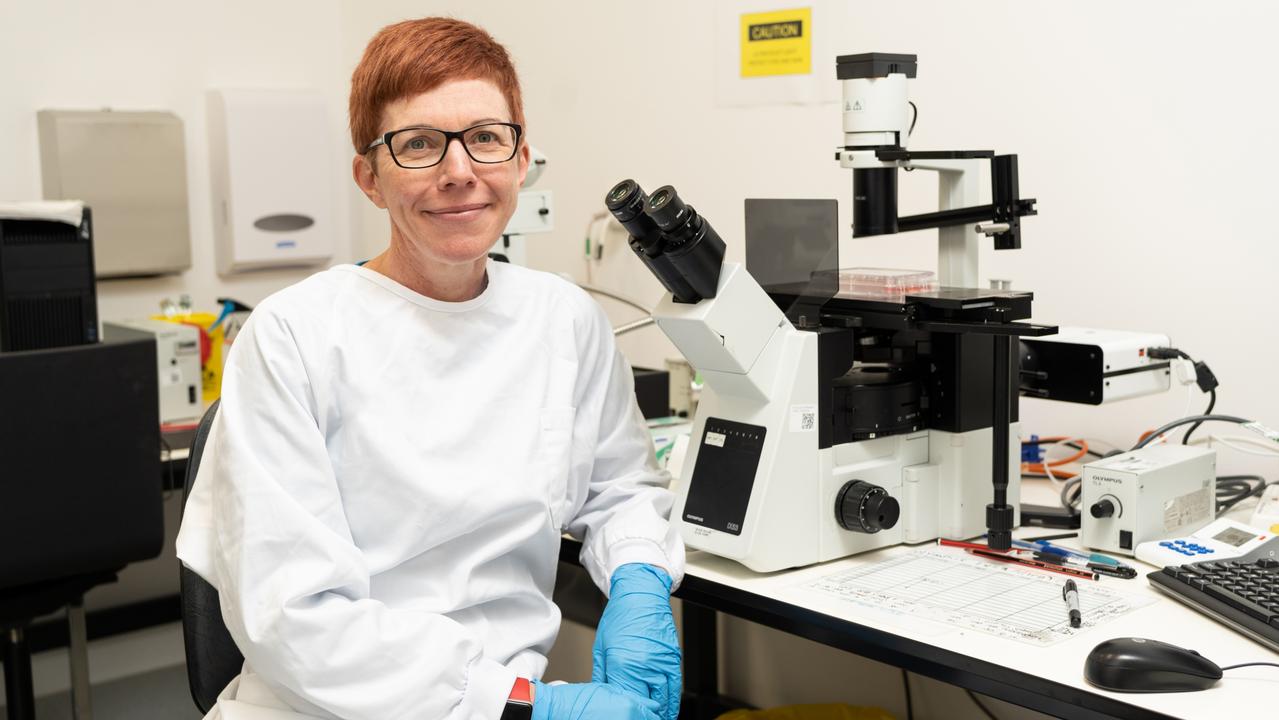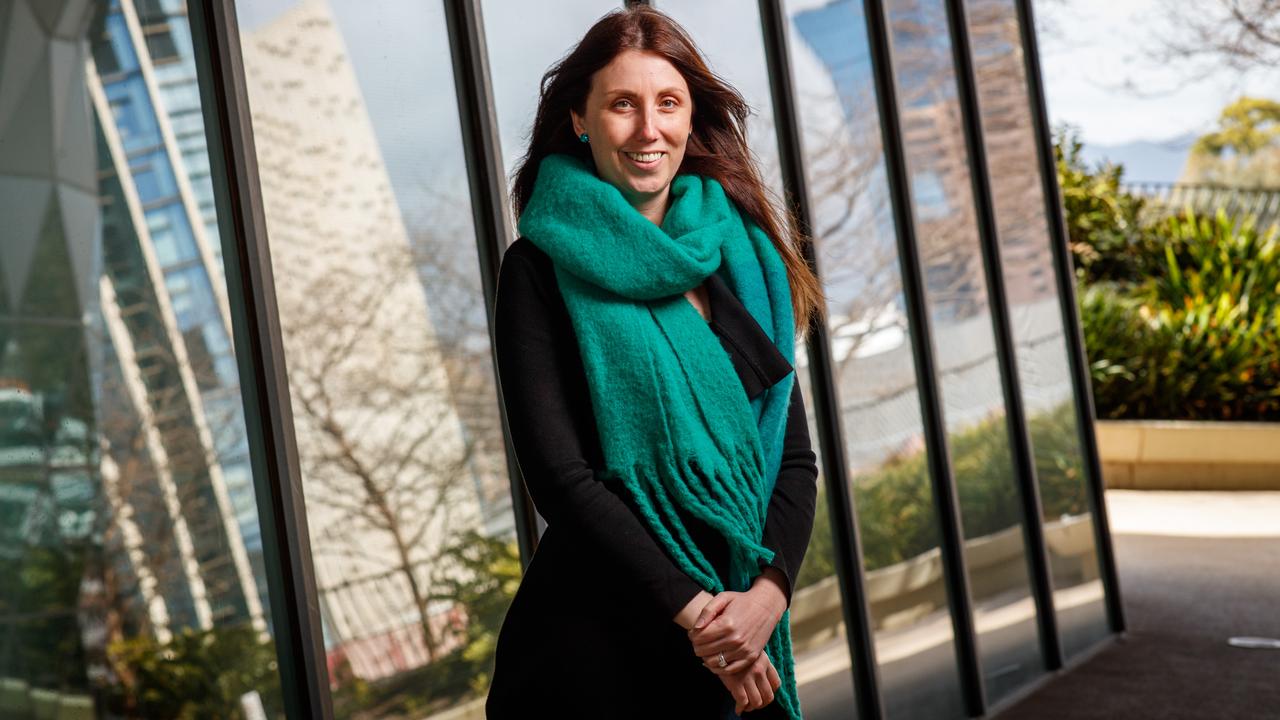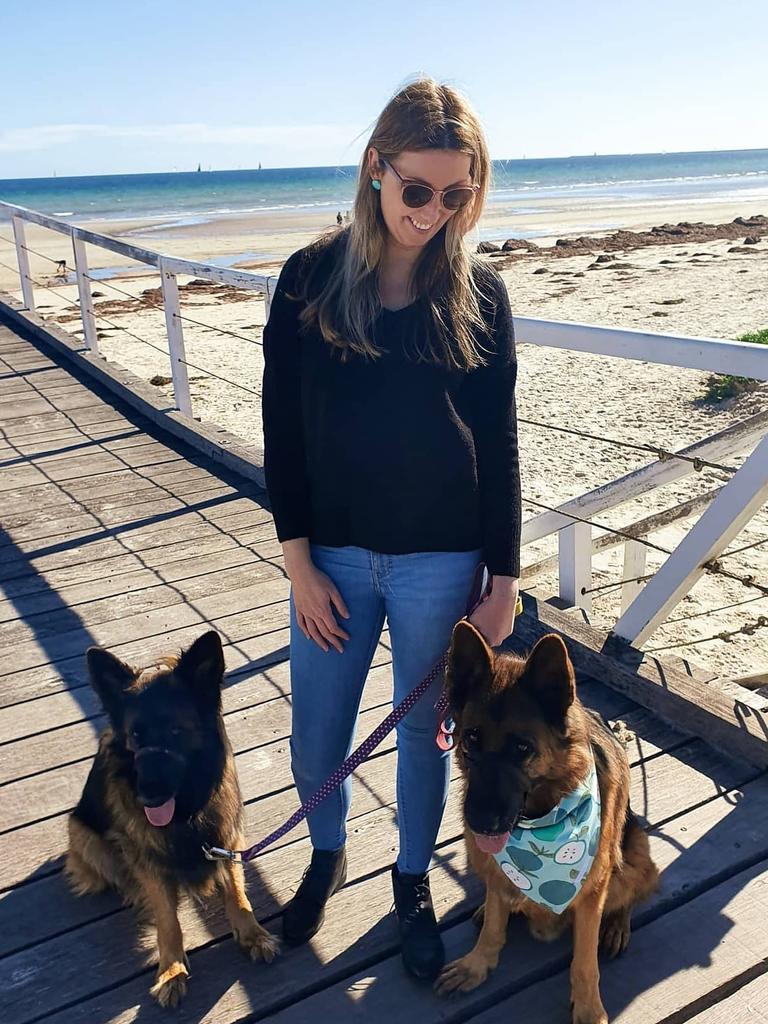Aussie breakthrough in bowel cancer screening using engineered bacteria
Aussie researchers have made a world-first discovery that could spell the end of awkward stool tests and lead to earlier diagnosis of the country’s second deadliest cancer. See how it works.
Health
Don't miss out on the headlines from Health. Followed categories will be added to My News.
An Australian medical breakthrough could spell the end of awkward stool tests and lead to earlier diagnosis of bowel cancer.
Researchers have discovered a new way to detect bowel cancer using engineered bacteria, which could save thousands of lives a year.
The world-first discovery has put the SA-led research team at the “cusp of an amazing new field of cancer detection and treatment”, study co-lead Associate Professor Susan Woods said.
Australia has one of the highest rates of bowel cancer in the world with 1 in 15 developing the disease. It is the country’s second deadliest cancer and kills about 14 people a day.
One of the biggest risk factors of the disease is that often symptoms are generic and can be mistaken for an upset stomach or haemorrhoids
Assoc Prof Woods, of the South Australian Health and Medical Research Institute (SAHMRI) and the University of Adelaide, said it was common for people with bowel cancer not to have symptoms in the early stages of the disease, which was why screening was so important.
She said they wanted to improve detection, including for young Aussies who fell outside of the national at-home screening program, because if the cancer was caught early enough it could drastically improve outcomes and quality of life.

The team engineered bacteria called Acinetobacter baylyi, which is known for its ability to capture DNA from things it comes into contact with, such as bowel cancer cells.
In the lab, the bacteria is then screened for bowel cancer DNA markers in a stool sample. It was found to be 100 per cent accurate in differentiating between models with and without colorectal (bowel) cancer.
“This is the first time that anybody’s been able to show that engineered bacteria can detect tumour DNA in the gut,” she said.
Assoc Prof Woods said she hoped the bacteria could be ingested in a pill form and the team were exploring ways that if the bacteria detected cancer it could give off a signal to the blood stream, so it could be picked up in blood tests instead of stool samples.
She said the engineered bacteria could be harnessed for treatment options as well.
“So the idea is that they’re living therapeutics and they can take in the DNA and can recognise a tumour. And then we can program them in the future to, for example, release therapeutics or something that might treat early cancer. We’re not there yet, but that’s what we’re thinking about,” Assoc Prof Woods said.

The research, which was done in partnership with the University of California San Diego and published in the Science journal on Friday, is likely still a few years away from clinical trials and being offered to the general public.
But it is giving hope to people who have colorectal cancers and those at risk.
Adelaide woman Renee Smith, who was diagnosed with stage 3 bowel cancer at 33 years old, said the discovery could have a “huge” impact on people’s lives.
Given her aged, Ms Smith was initially dismissed by doctors when she presented with abdominal pain and vomiting. Her symptoms were passed off as food poisoning or period pain.

She said she fought the medical system to get scans and a colonoscopy, describing it as a “traumatic endeavour”. After almost three months and having dropped to 50kg because she couldn’t keep down food, the tests revealed Ms Smith had a partial bowel obstruction that turned out to be a tumour.
Given its size, Ms Smith was told it had been growing for about five to 10 years. They were able to operate, removing part of her bowel and she had chemotherapy.
“It was caught for me early enough that it‘s a fairly positive prognosis. But it wasn’t caught early enough to not have lifetime-long issues,” she said.
“It (the bacteria) gives me peace of mind and assurance that is may save the next person from a long life of issues from losing a third of their bowel.”
While acknowledging the research was in its early stages, she hoped in time it could be used as part of her ongoing screening regime.
More Coverage
Originally published as Aussie breakthrough in bowel cancer screening using engineered bacteria









